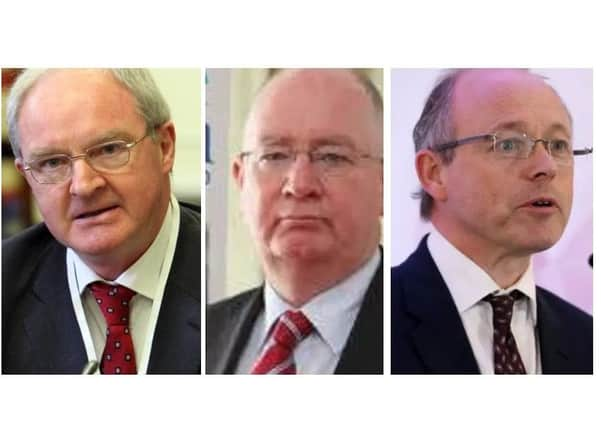Trevor Ringland: Jailing top terrorists could upset the peace process, and this compromises how we deal with the past


Each holds a position that makes it hard to express their personal views, which is a pity, because someone with authority in our society needs to give a candid assessment of the issues.
Of course, the best scenario is that every death is fully investigated, as well as any incident involving serious injury or damaged property.
Advertisement
Hide AdAdvertisement
Hide AdIf enough evidence is uncovered, then those responsible for every crime would be prosecuted.


That is how we deal properly with what happened in the Troubles.
Apart from issues with the resources, the problem is that, at the insistence of Irish nationalism, in the shape of John Hume and the Irish government, the peace process in the 1990s was built upon involving the biggest perpetrator of violence (republicans committed over 2,000 murders, injured thousands more and caused billions of pounds worth of damage).
The British government acquiesced.
That process culminated in the 1998 Belfast Agreement, although neither the IRA nor the DUP signed up to it.


Advertisement
Hide AdAdvertisement
Hide AdAs a consequence, the way we dealt with the past was surely compromised as putting the perpetrators in prison could have upset the fragile balance of the peace/political process?
Is it not in reality the case that since that time, our society has been trying to avoid dealing with the Troubles properly?
For many victims, this has understandably been unsatisfactory.
Compounding their hurt, there has been a lack of openness about the fragmented way in which the past has been dealt with.
Advertisement
Hide AdAdvertisement
Hide AdThe impression has been fostered that those who shout loudest get the most attention.
It seems that the fragmentary approach to the past is no longer sustainable. Therefore some hard decisions lie ahead.
Either we deal with Troubles crime properly and forensically, across the board, or we suspend investigations for a period, maybe 30 years, and commit ourselves to a major, irreversible programme of reconciliation, while respecting the “consent principle”.
The challenge in either case is to change the conversation from dealing with the past to shaping the future.
Advertisement
Hide AdAdvertisement
Hide AdThe political environment over the next year may well determine which choice is most viable. If there is evidence of good governance and a genuine commitment to share responsibility, then a suspension could contribute to bedding down that environment.
This path would be accompanied by amongst other ideas convincing efforts toward properly shared schooling, integrated housing, providing victims a platform to explain the impact of their personal tragedy, pensions for the injured and an unequivocal commitment from politicians to pursue their constitutional preference by peaceful and constructive means.
The other path would involve a full investigation of the past: our version of the Nuremberg trials, where the leaders were held to account first.
With access to high-level informers at the heart of the IRA and loyalist groups, information is available giving us a chance to put the godfathers of terrorism and those who gave them political cover in gaol.
Advertisement
Hide AdAdvertisement
Hide AdMany people on all sides have taken hard decisions to provide the opportunity to bed down peace on this island.
Tremendous grace has been shown, but it has often not been appreciated.
Flawed leadership can cause and perpetuate unnecessary conflict that affects a mass of ordinary people.
One event in the decade of failures we are currently commemorating that provides some direction as to which course we should take is the first Christmas truce of December 1914 when ordinary soldiers showed tremendous bravery to extend the hand of friendship to each other.
Unfortunately, their leaders persuaded them to return to the trenches.
People in Northern Ireland, and across these islands, should not make the same mistake.
Trevor Ringland LLB, Holywood